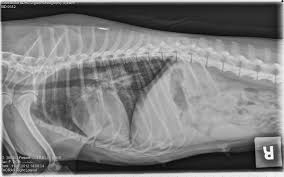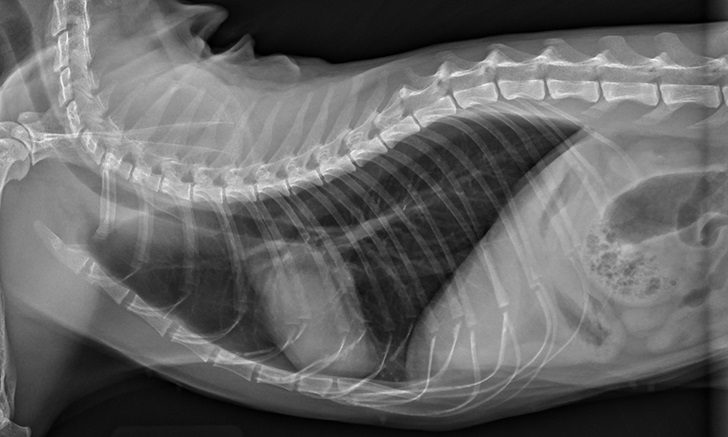
Many pet owners have heard of a new respiratory infection that has recently been found in a few states this year.
The new infection is still of unknown etiology. It has been reported in Colorado and the Pacific Northwest, specifically Oregon and Washington State.
The infection seems to start out with a dry hacking cough and can initially seem similar to kennel cough – a common and often self-limiting respiratory disease caused by the bacteria Bordetella. While the newly reported infection starts out seeming similar, the difference is the cough and symptoms don’t respond to antibiotics or cough suppressants.
The reports of the new upper respiratory disease often progresses to pneumonia. The majority of the dogs do recover, however, they may have a cough that persists for up to three months. The infection is considered contagious and until more is known about the infection, infected dogs should be isolated from other dogs until symptoms have resolved.

How do you know if your dog is infected?
Initially, you may not know what type of infection your dog has. A history of being exposed to other dogs increases the likelihood of an infectious process – such as daycare, boarding, dog parks or sharing communal water dishes on walks.
A cough or sneeze that does not improve over a 7-10 day period and gets worse, let’s you and your veterinarian know that this is a more complicated infection. Symptoms at this stage are typically a reduction in energy, reduced appetite and increased coughing.
Your veterinarian may recommend chest x-rays to look for bronchitis or pneumonia. A respiratory panel via PCR (polymerase chain reaction) which amplifies the DNA of viruses and bacteria is a very helpful tool in knowing the underlying cause of an infection as well.
For the new infection, since it is new and not yet identified, it is a diagnosis of exclusion. This means that our tests for identifying the cause such as respiratory PCR does not find it along with the symptoms, duration of coughing, failure of conventual treatment to work and in many instances, progression to pneumonia.


It is important to remember that other respiratory diseases can lead to pneumonia and similar symptoms, though coughing typically doesn’t last for several month. Until we know more about the new infection, there may be some guesswork involved. But working with your veterinarian to ensure making your dog is eating, drinking, has a reasonable amount of energy along with providing supportive care should pneumonia develop, is essential.
At this time, no cases seem to have been reported in Texas. Over time this may change. If you are concerned that your dog has a respiratory infection of any type, please visit your veterinarian and start with an examination. Your veterinarian will work with you and help you make the best decisions for next steps and emerging information.


